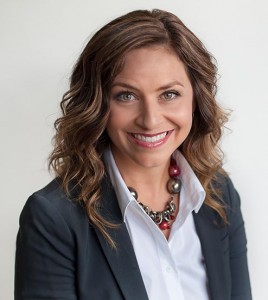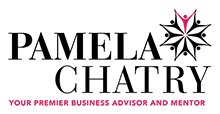Thinking Outside the Box in Raising Children and in Business with Vanessa Lapointe
 1. With the vast amount of information available at our fingertips, how would you say instruction for child rearing is different today?
1. With the vast amount of information available at our fingertips, how would you say instruction for child rearing is different today?
Historically, our overall cultural approach to parenting has been largely informed by a history of biases in our beliefs about children. With the advances of contemporary science, especially in the field of neuroscience, we are no longer able to hide behind these erroneous biases. So the shift in child raising has really had its origins in the revelations created by modern day science. We know what brains need to grow in the best possible way. We also know that when brains are given what they need, very naturally the child’s soul gets what it needs, and the magical dance between emotional and physical health is underway. This gives the child an ideal shot at being able to handle this thing called life.
2. Because every parent has their own style/opinions on raising children, how has this affected the decisions you make in your business?
I am sensitive to the reality that parenting is a touchy subject and that people tend to be really protective of their own approaches. I am also a champion of family-centered care, which means that I always start with where the parent is at and walk forward from there. However, I have a very firm and pointed understanding of what children need to grow up in the best way. Not based on opinion, but rather on science. At the core of my business is an approach to practice which empowers families and also champions children with the best information available. Relationships is what allows us to bridge the divide between parental opinion and best practice.
3. How do you separate your own personal beliefs with raising your children to helping parents with their own (in your business)? Or are they all in the same?
I believe that there are fundamental elements, which must be core to all parenting. That the form these elements take, tangibly will vary from child to child and family to family depending on setting factors and events. So, my personal beliefs are those informed by factual science and these are constants regardless of what area of my life I am sitting in. The manifestation of those beliefs will be as unique as each child and family. Part of our role is to nurture and support families as they walk along the path toward figuring out what that is for them.
4. What are your thoughts on when a child says “I want to be ____ when I grow up”? From a business point of you, do you always support their dream no matter how outrageous the thought may be?
Dreams are dreams. The words are simply a concrete actualization of an inner, deeper theme and none of us should ever be denied expression of who we are. And so, dream on sweet child, let us champion you as that dream grows with you, eventually taking flight, in whatever form.
5. Have you ever been put in a position where you had to defend against traditional ideas and think outside the box?
All. The. Time. This is core to who I am. I shrink away from the traditional and am always drawn to that which is new, novel, and outside the box. I first decide what I want to accomplish, what is important and where I want to land. Secondly, I figure out what the route is. I think people fall into that which is traditional or standard because they start with the route and get bogged down in that.
6. What was your greatest business challenge? How did you handle it?
People. My greatest business challenge has been finding people who have that “intrepreneurial” spirit and manifest to their core the key elements of our guiding vision and have sparkle. You can train people in systems and processes, but it is far more challenging to teach someone “how to be”. It’s that certain je ne sais quoi that is part of what I call “having sparkle.” Finding people who get what it is to work inside a for-profit business, are true to our vision, and have sparkle. This has created the biggest challenges historically. Fortunately, we have learned a lot from those challenges and are much savvier with how we find “our people” now. We have solid processes in place and we are “sparkle” sensitive in every element of our recruitment efforts.
I have one other challenge that I want to highlight (brevity not being my strong point). I also think that it is important to strike the right balance between working IN your business and working ON your business. Being a trained psychologist, it was a challenging leap for me to wrap my mind around the macro concept of my brand rather than the micro concept of me as a clinician.
7. What advice would you give to a woman starting her own company?
Being a woman in business has given me the best of everything. I get to call the shots on my schedule, the type of work I do, the message I put out into the world. Everything. The highlights reel is long and glorious. And this is my bottom line. Which means that the reality of what it takes to make all of that happen is a no brainer to me. I work long hours, but on my own terms. My mind works constantly, but I can turn it off when I want to. I have had to get fierce about the things that are important to me and this hasn’t been without costs. But the bottom line makes it worth it to me. I get to be who I am without exception. So my advice to a woman wanting to start her own company is to be very real at the outset of what your bottom line is and ensure that the reality required to make it happen does not overtake your highlights reel.


